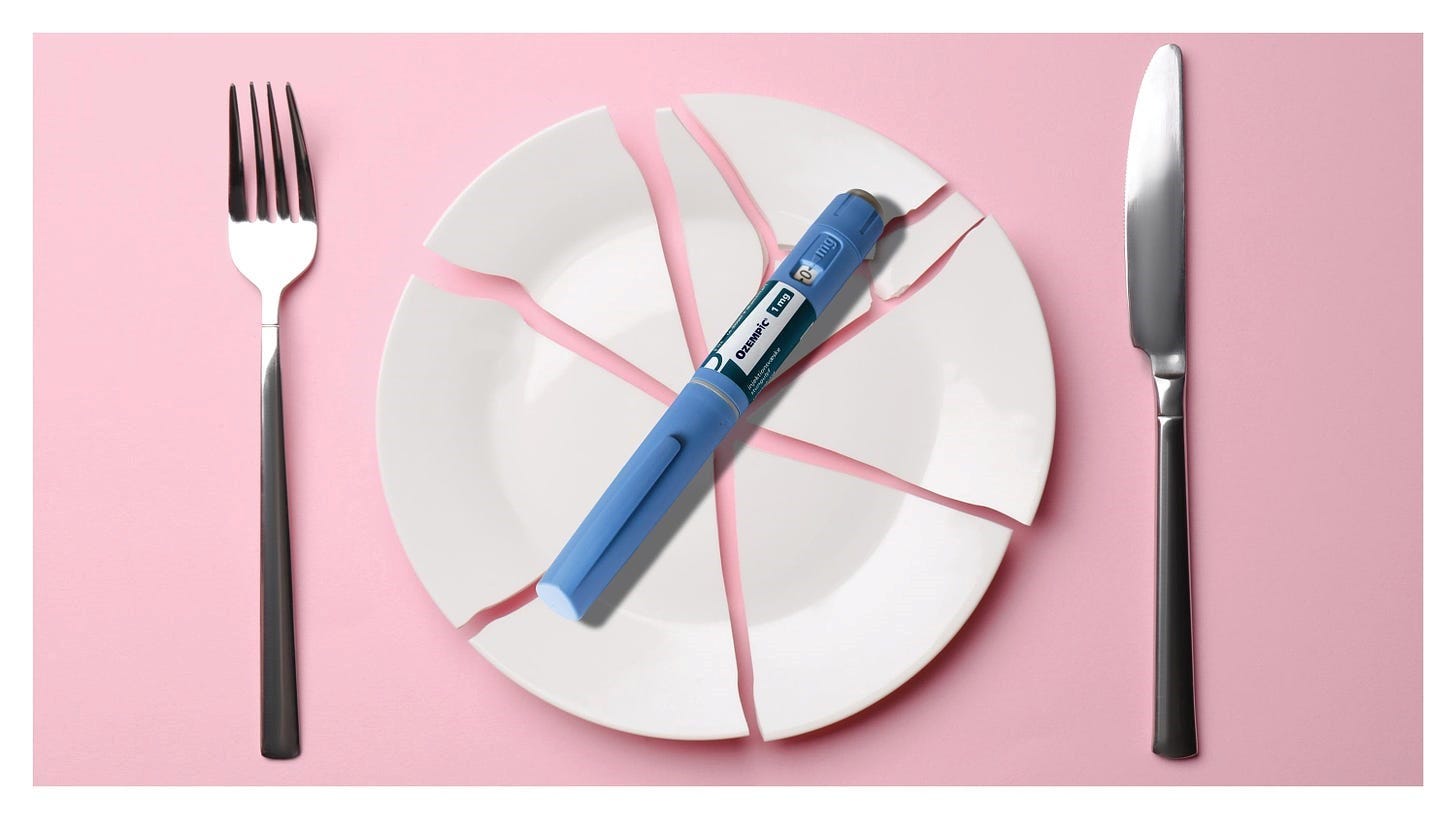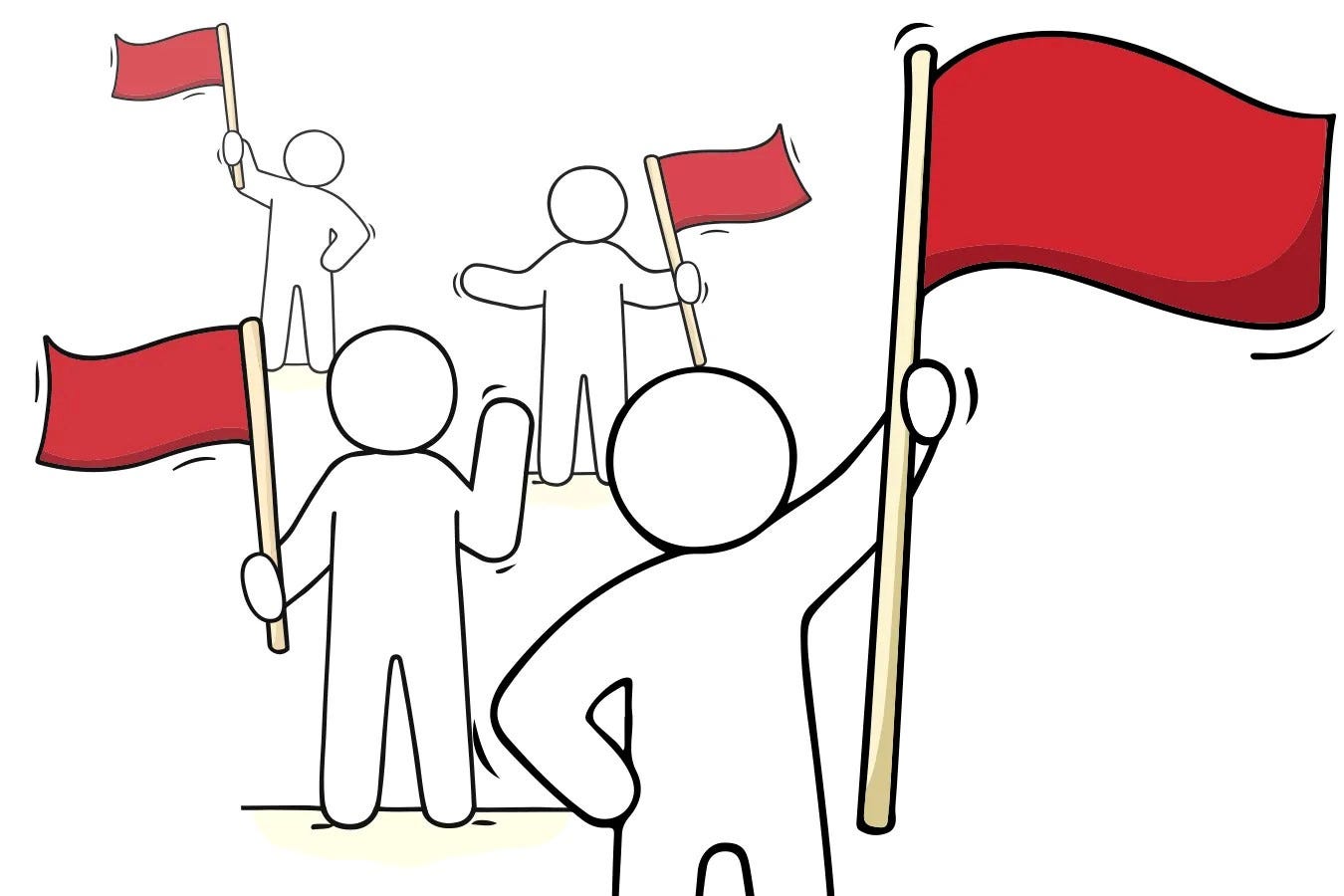Last week we explored the mechanisms behind Ozempic’s star launch to fame (it was even mentioned in the Grammys this year, like what?!). We discussed common and severe side effects and the increasing manufacturing of compound drugs due to shortages. I just had some…additional thoughts to share.
Things to Keep in Mind:
So, what’s the end goal? Having honest conversations with your provider about what your expectations are is important. Acknowledging side effect tolerance, goals, cost, and availability are all factors to look at when deciding a timeline of use.
But if weight loss is your only goal and your provider aligns with this goal only, then other options may need to be further explored with another provider prior to starting medication.
Do you truly need to lose weight, are there disruptions in your weight due to internal or external factors? Or are you seeking weight loss due to unrealistic standards that society imposes and are ever-changing? These can all be things to explore with other healthcare providers such as psychologists, dietitians, or others before jumping on the Ozempic bandwagon.
I’ve had patients struggling with weight loss for years, and have seen how weight has impacted their activities of daily living and chronic conditions, and no matter what they do their set point doesn’t budge, and they’re not comfortable with that. I’ve also had patients come in and ask for weight loss drugs (or clearance for surgery), without having attempted to change any part of their diet or lifestyle; first off sir, I can’t prescribe, second off, your doctor likely sent you to my office because he knows medication use and nutrition interventions for weight loss have to go hand in hand (I wish all doctors would agree…)
I don’t see weight loss as a measure of health or success. Patients and I explore their habits, and motivations/barriers to change. We set non-weight-related goals, focus on diet variety and balance, and I encourage they follow a dietary pattern that will help manage their chronic conditions. Weight loss isn’t always predictable; you can lose weight in unhealthy ways or you can start changing your lifestyle and habits and your weight won’t budge.
I’ve had the chance to have deep and honest conversations with folks who note they choose these interventions from a place of vanity, low self-esteem, or are just looking for a “quick fix.” While I don't oppose the use of medication as an intervention, I advocate for heightened awareness throughout the decision-making process. I encourage individuals to scrutinize their intentions and consider the long-term consequences and side effects before committing; know why you’re doing it, and know what to expect.
Nutrition and Medication:
Medications are just one tool in your toolbox, and a hammer can’t build a house by itself; many people believe that like surgery, medication is “the easy way out,” but I beg to differ. Weight loss drugs can help with the hunger/metabolic adaptations that come with weight loss and genetic factors that lead to weight gain such as the differences in reward response, hunger/satiety cues, and other genetic factors that add propensity to gain weight in today’s environment. The thing is, once off the medication and at a lower weight, hunger ramps up again and can lead to greater weight gain.
So, if you’ve been putting nutrition and physical activity on the back burner while on these injections, counting on them as your sole solution, you’re going at it wrong. The loss of lean muscle mass is common in any rapid weight loss but has been seen consistently with the use of medication.
We need muscle to do our activities of daily living, and lean muscle mass is also associated with a more efficient resting metabolism. Maintaining lean muscle mass through exercise and adequate caloric and protein intake can make sustainable weight loss after weight loss drug use more realistic. If the proper nutrition and physical activity interventions aren’t set in place, you might be doing more harm than good.
Many people are also playing a “how low can I go game,” trying to lose as much weight as possible on the medication. Working with your healthcare team and establishing realistic expectations and healthy habits is key. People at higher BMIs looking to lose weight on medication may have never had a lower body weight and should focus on how to make that weight loss sustainable.
Society and Ozempic:
But what does this say of us as a society? (Most) celebrities are always going to be chasing the next weight loss “miracle” or “trend” be that a fad diet or a medication. Medication use is being positioned in the media as a “quick fix,” or something you can use to shed a couple of pounds for an event, but that’s not the intended use and can lead to “yo-yo weight loss” and other possible side effects. It’s been seen as a replacement for behavior change and diet/lifestyle interventions in the media, and not another tool as I stated, which can easily be misconstrued.
I’ve seen bloggers with a 100K+ following who might not be Grammy-level famous but still carry influence, casually talking about Ozempic online. They talk about the medi-spa they go to for X amount of treatments and how they were convinced to get the injections for their event that’s 3 weeks away.
This is not a responsible way to go about voicing your experience with weight loss. Promoting getting a medication without appropriate medical supervision, blatantly disregarding its risk, using it as a very short-term intervention and encouraging others to do the same is not okay. The type of praise these drugs are given in the social media space leads others to make uninformed decisions, and in the end, no one is held accountable.
There’s also the aesthetic piece. I’ve seen many articles and TikTok videos on “Ozempic face,” with surgeons offering their services for fillers and other procedures. Then, Ozempic face turned into “Ozempic butt,” and I wonder what the next hashtag will be. With rapid weight loss we lose fat mass, and poor intake can lead to a decrease in elastin and collagen, increasing signs of aging and leading to a hollowed-out appearance.
But come on, where does it stop? If you don’t feel pressured enough to scrutinize one aspect of your appearance, “here you go, here’s another one.”
The Ozempic craze reinforced the perception that we live in a fatphobic society. It’s crazy to think that in this century we are calling out brands such as Victoria’s Secret for a lack of inclusivity and body diversity, but we chase down and sell-out diabetes medications for weight loss, still believing that we are not “thin enough.”
If the drugs were really being used as intended it wouldn’t cause too much worry, but what will be the societal implications on weight stigma, and body dysmorphia in the long run? The social media space we tend to frequent is a funnel, and can skew our view of reality, so if all we see is already thin folks using medication to get even thinner, where will that lead us?
Remember that someone else’s lived experience is not your own, that what works for your neighbor might not work for you, and that being informed and supervised throughout any medical intervention is already a step closer to being safe and successful.
Red Flags:
If you're dealing with an ongoing eating disorder, disordered eating, or have a history of either, the prevailing narrative may make Ozempic seem like an enticing choice due to testimonials and ads being everywhere. However, prioritizing your well-being beyond weight loss and seeking healthcare professionals who endorse a holistic approach to your health journey is crucial. Your safety and your recovery come first.
If you are using the medication and have been experiencing adverse effects, or are developing a negative relationship with food/body, talk to your care team. Here are some red flags to look out for:
RED FLAGS TO LOOK OUT FOR WHEN ON WEIGHT LOSS MEDICATION
-Are you experiencing GI issues that aren’t corrected with interventions?
-Do you find yourself eating larger quantities of food in any given day or week?
-Are you vomiting after meals?
-Are you developing a fear of food or consider some foods “unsafe”?
-Are you putting off eating and skipping meals even when you are hungry?
-Are you avoiding social interactions and experiences? Are you avoiding eating with others?
-Have you engaged in body-checking behaviors?
-Are you experiencing uncontrollable thoughts around food, body image, exercise?
-Are you experiencing guilt or shame when eating foods you previously enjoyed?
-Do you feel you can get off Ozempic and have a good understanding of nutrition and how to nourish yourself properly off medication?
These should serve as signs that there might be issues to address prior to sticking with Ozempic, talk to your healthcare providers about appropriate steps to take for finding further support.
I believe in bodily autonomy, and that we get to choose what to do with this vessel we have on our journey through earth. I hope this serves as some food for thought, provides guidance, helps open up conversations with your providers or with your loved ones, and as a reminder to use all the tools in your toolbox.
Keep chewin’ :)








